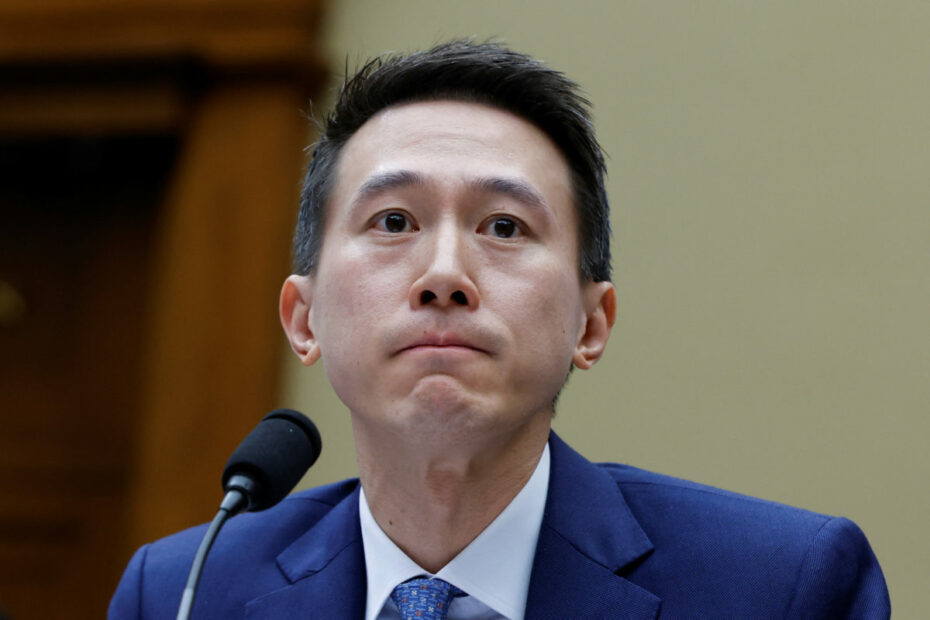As TikTok faces the looming threat of a U.S. ban, the social media giant is making every effort to avoid such a fate, even enlisting the help of a former Biden aide. Ankit Desai, who briefly worked with then-Sen. Biden in 2005, was contracted by TikTok in late January to lobby on behalf of the platform. Desai’s involvement comes as a response to growing concerns in Washington over the app’s data privacy and national security implications due to its connection with the Chinese government.
TikTok CEO Shou Zi Chew experienced a grueling five-hour hearing on Thursday, during which he faced tough questioning from lawmakers. The Biden administration has stated that the platform can only continue to operate in the U.S. if it severs ties with its Chinese parent company. House Energy and Commerce Committee Chair Cathy McMorris Rodgers (R-Wash.) expressed her belief that TikTok should be banned due to its continued emphasis on control, surveillance, and manipulation.
In response to these challenges, TikTok has assembled a team of lobbyists with close connections to Biden and congressional leaders. Among them is Jamal Brown, who served as national press secretary for Biden’s 2020 campaign. Additionally, the company contracted with SKDK, a well-connected consulting firm that has close ties to the Biden administration. Anita Dunn, one of SKDK’s founders, is presently a senior adviser to the president.
According to OpenSecrets, TikTok and its parent company ByteDance spent a record $5.4 million on lobbying last year. The company engaged 43 lobbyists, including former members of Congress and key aides to influential political figures such as Speaker Kevin McCarthy (R-Calif.), Senate Majority Leader Chuck Schumer (D-N.Y.), and former Speaker Nancy Pelosi (D-Calif.).
TikTok has also launched an advertising campaign in the Washington, D.C. area to showcase its commitment to data privacy and highlight the platform’s importance to American small businesses.
Despite Chew’s assurance, during the hearings, TikTok is not controlled by the Chinese government. The company is working on a plan to store data with U.S. software firm Oracle. However, lawmakers remained largely unconvinced.
Only a few progressives, led by Rep. Jamaal Bowman (D-N.Y.), have voiced opposition to the ban, considering the app’s immense popularity among young Americans.
Chew did not explicitly state his position on a potential TikTok sale, but he did point out that American-owned social media companies have also faced data privacy issues.
On Thursday, Beijing announced its strong opposition to any forced sale of TikTok, asserting that such a move would harm Chinese investors and undermine the country’s confidence in investing in the United States.
As the pressure mounts, TikTok is doubling down on its efforts to prevent a U.S. ban. The company’s strategy includes not only leveraging its powerful lobbying connections but also emphasizing the positive impact it has had on American small businesses and its commitment to enhancing data privacy.
TikTok’s efforts to change public opinion have been met with varying degrees of success. While some lawmakers continue to view the platform with suspicion, others recognize the cultural significance and entertainment value it brings to millions of young Americans.
In the midst of this ongoing debate, TikTok is exploring potential partnerships with U.S. companies to address data security concerns. The proposed collaboration with Oracle to store user data on American servers is one such example, although it has yet to convince many lawmakers of its efficacy.
Amid the uncertainty, TikTok users and creators are watching closely, as the platform’s fate in the United States remains in limbo. For many, the app has become an indispensable source of creative expression, connection, and even income.
Regardless of the outcome, the TikTok controversy highlights the complexities surrounding data privacy and national security in a world where technology and social media platforms know no borders. The scrutiny faced by TikTok may well serve as a turning point in the ongoing global conversation about the role and responsibilities of tech companies in ensuring the privacy and security of their users.
As the Biden administration and Congress continue to evaluate the potential risks and benefits of TikTok’s presence in the U.S., the company’s future remains uncertain. The decisions made in the coming months will undoubtedly have far-reaching implications not only for TikTok but also for the broader tech industry and the ongoing debate over data privacy and national security in the digital age.
